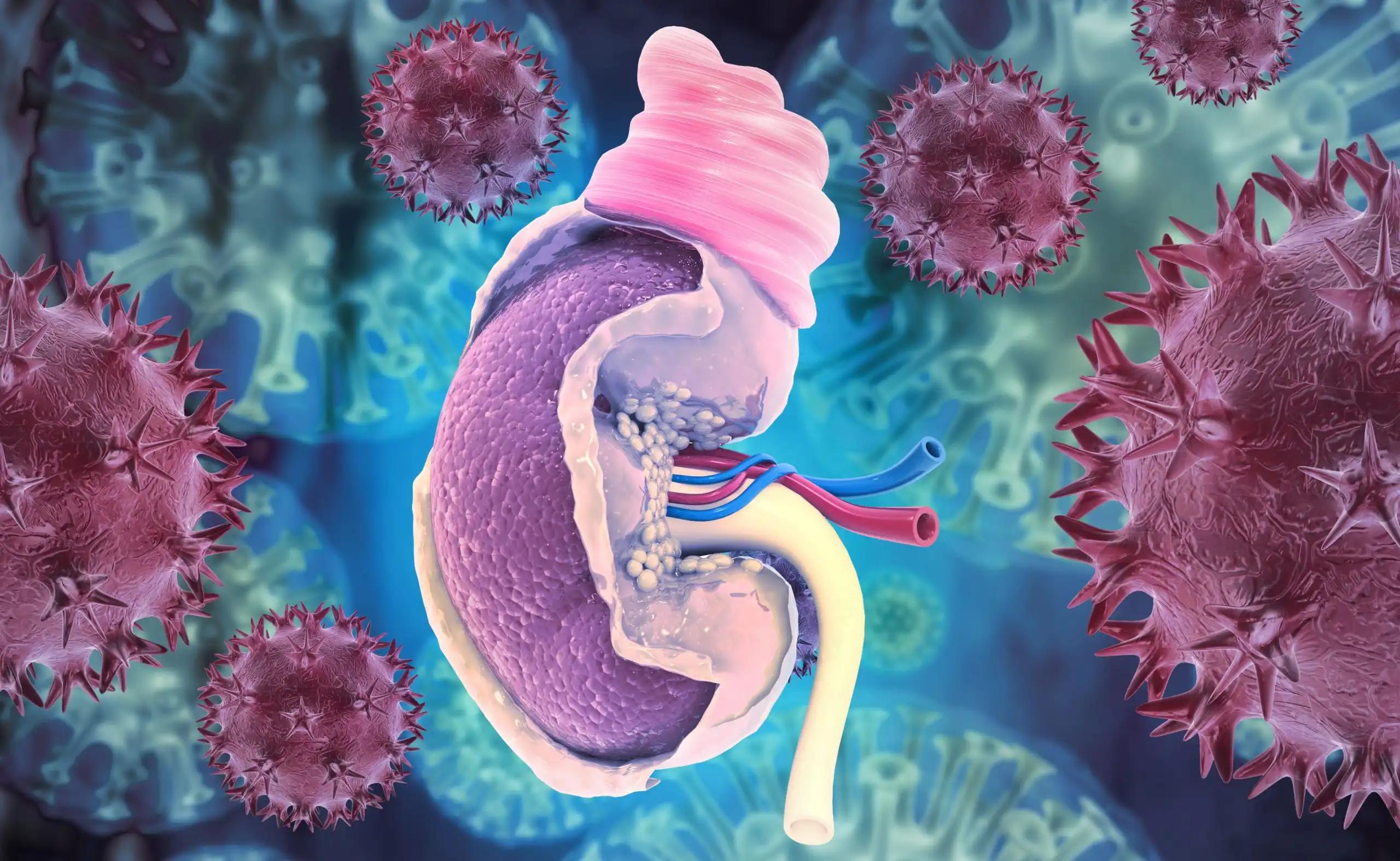KEY TAKEAWAYS
- The phase 2 CHRYSALIS-2 trial is investigating the efficacy of combination therapy in patients with atypical EGFR mutations in non-small cell lung cancer.
- The study’s primary aim is to evaluate the efficacy of amivantamab and lazertinib in treating patients with atypical EGFR mutations in non-small cell lung cancer.
- The method used in the trial involved administering 1050 mg of amivantamab intravenously every week during the first cycle and subsequently every alternate week, along with 240 mg of lazertinib orally daily.
- The objective response rate was 56.7%, with no newly identified safety signals or concerns.
- The Exon 19 G719X mutation was the predominant mutation observed, comprising 60.0% of the mutations.
- The combination of amivantamab and lazertinib exhibited promising efficacy in treating patients with atypical EGFR mutations in non-small cell lung cancer
EGFR mutations that are not typical and span exons 18 to 21 are responsible for 10-15% of instances of non-small cell lung cancer (NSCLC) that are mutated in EGFR. Afatinib is the sole EGFR tyrosine kinase inhibitor (TKI) that has received approval to treat these mutations. The clinical assessment of the amalgamation of amivantamab, an EGFR-MET bispecific antibody, and lazertinib, a 3rd generation EGFR TKI, is underway in individuals with unconventional EGFR mutations. The ongoing open-label study, CHRYSALIS-2 (NCT04077463), with an expansion cohort (C), is currently investigating the efficacy of amivantamab + lazertinib in advanced non-small cell lung cancer (NSCLC) patients who exhibit atypical non-exon 20 insertion EGFR mutations (such as S768I, L861Q, G719X). Patients may have undergone a maximum of two prior lines of therapy, which may encompass one first- or second-generation epidermal growth factor receptor tyrosine kinase inhibitor. The patients are administered 1050 mg of intravenous amivantamab every week during the first cycle and, subsequently, every alternate week. However, for patients with a body weight of 80 kg or more, the dosage is increased to 1400 mg. Additionally, they are also given 240 mg of oral lazertinib daily. The investigator evaluates the response according to RECIST v1.1.
As of the interim analysis conducted on June 8, 2022, 40 patients were deemed response evaluable, meaning they had undergone at least one post-baseline disease assessment or had discontinued for any reason. The cohort’s median age was 64, with 47.5% female patients. Prior therapy was reported in 19 out of 40 patients, with 17 out of 40 receiving one prior line of therapy and 2 out of 40 receiving two prior lines. The Exon 19 G719X mutation was the predominant mutation, comprising 60.0% of the mutations observed. A significant number of these patients exhibited compound mutations. A partial (PR) best response was observed in 60.0% (24/40) cases. Efficacious outcomes were observed in patients who were treatment naïve and had undergone post-afatinib treatment. The evaluability of the median response duration was inconclusive. Among the 30 patients who underwent at least three scheduled post-baseline assessments or discontinued for any cause, the objective response rate was determined to be 56.7%. Specifically, 16 patients (53.3%) achieved a confirmed partial response, while one (3.3%) had an unconfirmed partial response. The median duration of response was not evaluated. There were no newly identified safety signals or concerns. In a cohort of patients with limited therapeutic alternatives, the combination of amivantamab and lazertinib exhibited promising anti-neoplastic efficacy in most patients while maintaining an acceptable safety profile.
Source:https://oncologypro.esmo.org/meeting-resources/esmo-asia-congress/amivantamab-in-combination-with-lazertinib-in-patients-with-atypical-epidermal-growth-factor-receptor-egfr-mutations-excluding-exon-20-insertion
Clinical Trial: https://clinicaltrials.gov/ct2/show/NCT04077463
B.C. Cho, Y. Wang, Y. Li, L. Wu, B. Besse, M.E. Marmarelis, K. Goto, J. Lee, S. Lee, Y. Zhang, J. Neal, J. Curtin, J.M. Bauml, J. Mahoney, L. Trani, R.E. Knoblauch, P. Tomasini/Amivantamab in combination with lazertinib in patients with atypical epidermal growth factor receptor (EGFR) mutations excluding exon 20 insertion mutations: Initial results from CHRYSALIS-2/Annals of Oncology (2022) 33 (suppl_9): S1560-S1597. 10.1016/annonc/annonc1134.



